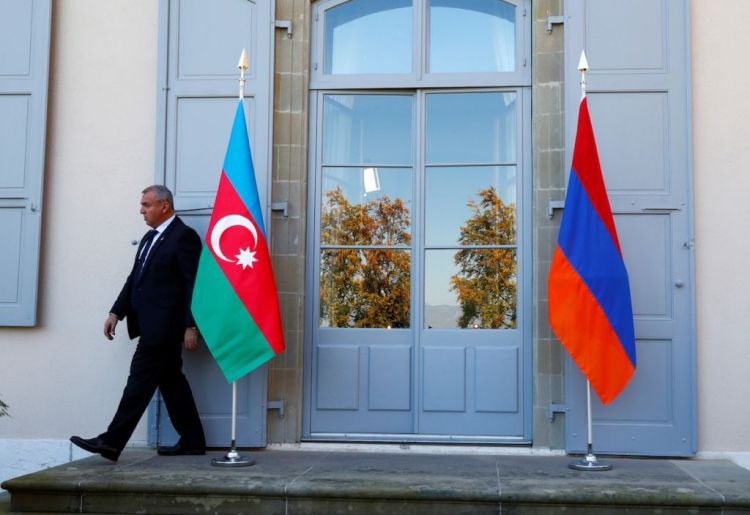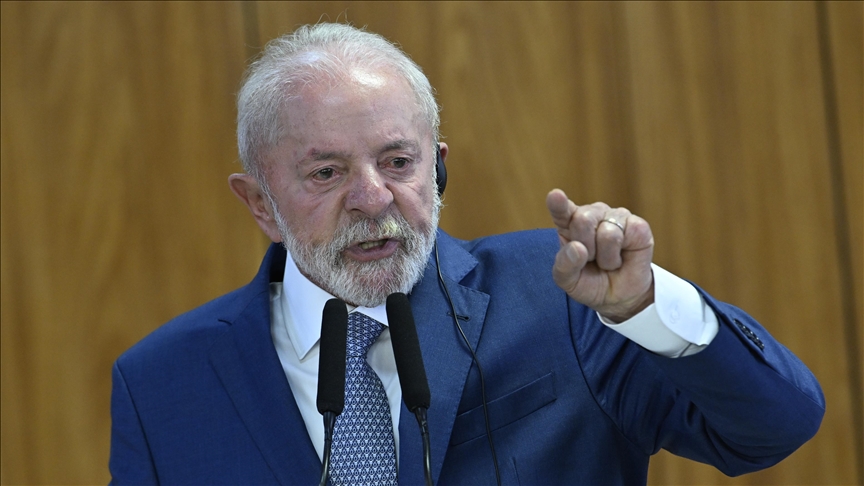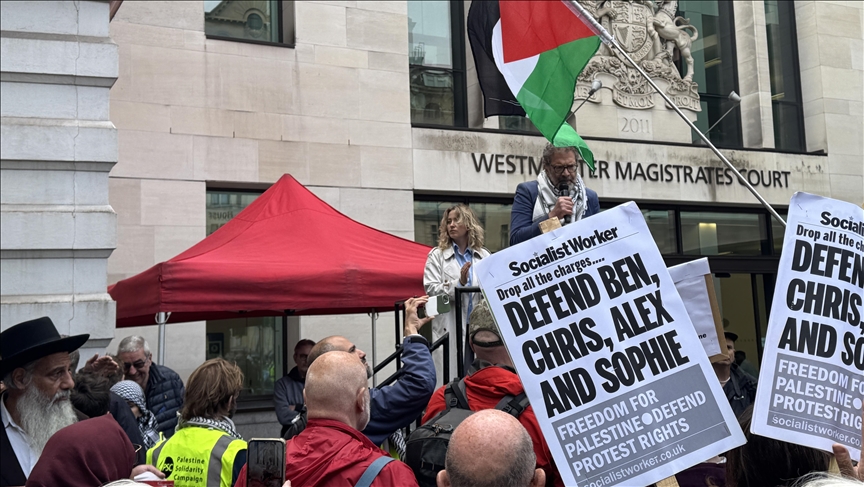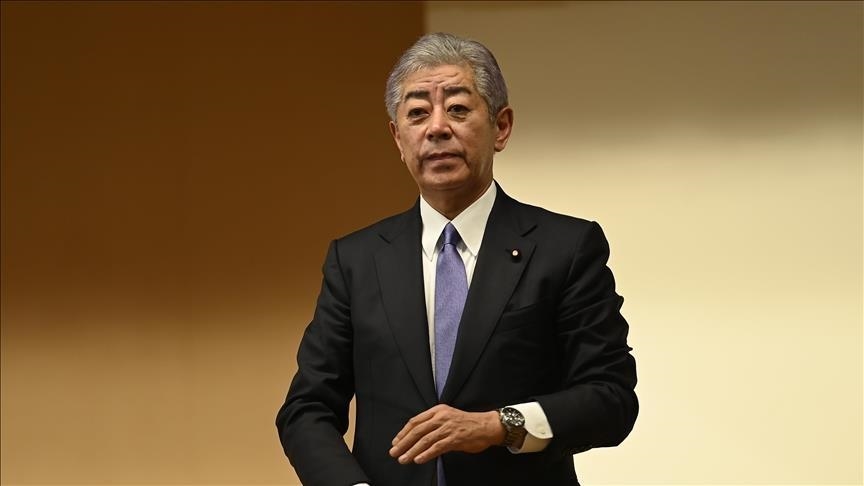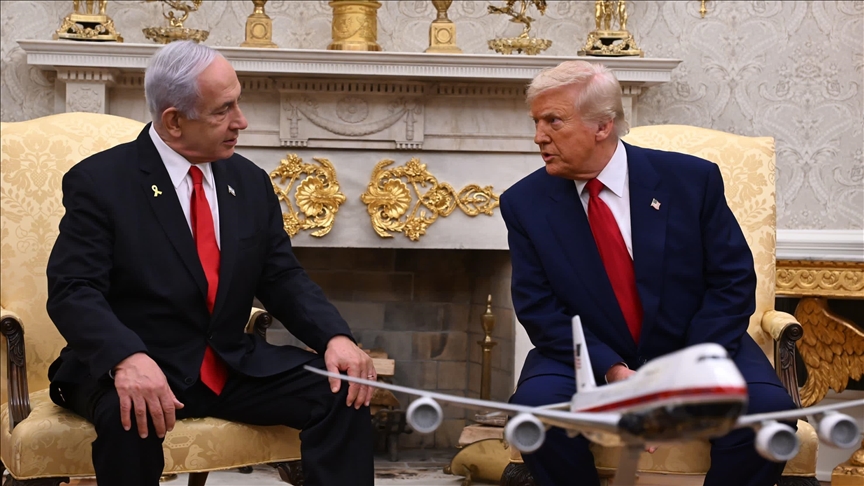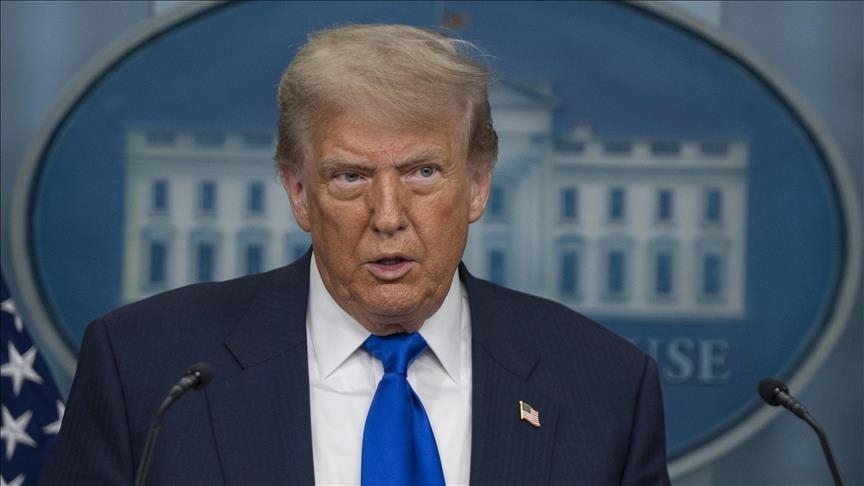Since the meeting of the leaders of Azerbaijan and Armenia at the Munich Security Conference the Garabagh problem has been a major topic of discussions again. Following the debate, media and experts give a lot of opinions regarding the speeches of the President Ilham Aliyev and the Prime Minister Nikol Pashinyan. A fair approach of some media to the issues of Garabagh was noteworthy, where Armenia was once again pilloried for their false claims over years on the lands of Azerbaijan. On the other hand, the "peace-loving" Armenia found no answer before the condemning eyes of participants, when Azerbaijani side received a news of its martyr that was the victim of Armenian sniper shot. This was the foreground stage where Garabagh problem heard through clashing words of the two leaders, no matter who is believed or not.
In the background stage, Azerbaijan is going to mark the Khojaly genocide in late February and in in late March the 31st March Massacre and the dates of occupied Garabagh regions one after another. As viewed at a simple glance on the calendar of Azerbaijan, the country just looks as full of tragedies and losses in almost every month. This is of, course, the opposite for Armenia, who still shout out with the claim of the so-called genocide with no evidence and no date to point a finger, while in fact, it celebrates those days as its glorious holiday and conquer over Azerbaijan's lands. Who is the vulnerable then? Who is actual aggressor?
In order to elucidate the typical Armenian craft in faking history of its own, Eurasia Diary invited foreign expert for an open talk about the Garabagh issues .
.jpg)
This time, Professor Patrick Walsh from Ireland told of his political views and facts about the prolonged conflict of Garabagh and the Khojaly genocide. Professor Walsh first shared his impressions in his younger ages when he first heard of Garabagh war on TV in his homeland.
"I can remember, as a young man, hearing of the “Nagorno-Karabakh war” on the TV. At that point the conflict in Northern Ireland, where I lived, was drawing to a close and a peace process was developing that would end the 28-year conflict. I think the vast majority of people in Ireland and the U.K. never knew about Khojaly or what happened there. I had to actively seek out details myself, later on when I wrote about the Ottomans and the Great War and people started asking me about Khojaly. When I began writing about this period, I was forced to understand the Armenian issue and it was this that prompted me to learn more about Khojaly.
We have had our share of massacres and killings in the North of Ireland and when I told people about what I learnt about Khojaly they were astonished. They were in disbelief because nothing of this magnitude was ever contemplated by either side in our conflict, let alone put into effect. It would have been considered far beyond the depths of depravity that something like this event should have taken place. Even the wildest people in our society would have been appalled at this massive and brutal act of terrorism, directed largely at civilians. Later we saw this type of thing in the Balkans but in 1992 it really was shocking."
Professor Walsh also touched on Armenian policy of claiming territory of Azerbaijan giving a clear picture of Armenian crimes through which they plotted against many lives of who opposed their sinister plans.
"I have tried to understand Khojaly in a larger historical context since. The only way I can make sense of it is through the pernicious character of Armenian nationalism. One thing that runs through Armenian nationalism is a desire for maximalist territory – desiring any piece of land where Armenians live in any number. Of course, in 1914-20 this manifested itself in the Magna Armenia/Great Armenia project of the Dashnaks. All sorts of distortions of history, demography and general information were, and have been employed, in this irredentist pursuit with deadly implications. And the Armenian form of nationalism seems to be all too willing to not only sacrifice the lives of those who do not measure up to its uniquely pure race and religion character, but also the interests of its own people in the pursuit of land at any cost."
In his comments Patrick Walsh largely spoke of Armenian maneuver in the history and also linked the claims of historical lands of Azerbaijan to the Armenian craft of successfully faking history, such as so called genocide of Armenians and some other baseless facts.
"Armenia has a deeply hypocritical attitude to these things. It likes to portray itself as a victim to the world, without any responsibility for the calamity it certainly had some responsibility for bringing on its own people in 1915-20, through Dashnak nationalism, and will not tolerate the idea that it has created many victims of its own. These range from the large number of Moslems who died in Eastern Anatolia and Transcaucasia as a result of the Armenian Insurrection in support of the Great War on the Ottoman State and the objective of carving out Magna Armenia, to the latest sufferers of death and ethnic cleansing in Karabakh and the Erivan State itself.
The Armenians have, of course, great advantages in promoting their false narrative in the West (and indeed in Russia). They have a large English-speaking and monied diaspora of long standing, as a result of the calamity of a century ago. They have power and influence in the U.S. and many major European states. They have the sympathy of the Christian world, which although is not as Christian as it once was, still has latent tendencies toward support for its own kind. And they are quite single-minded in their pursuits – a single-mindedness I would say that is often destructive and detrimental to their own interests and development as a people.
Azerbaijan faces an uphill struggle, lets be frank. But its young academics need to produce popular, readable books about its history that appeal to western audiences and get across the Azeri case. It is a strong case and it will have effect if it is heard. It needs to be simply put and gain traction through stating the simple facts, without exaggeration and avoiding the type of wilder claims that the Armenian lobby indulges itself in.
When I started finding out the facts a while ago and researching the history of the region, I determined to write articles in Ireland and on my website (drpatwalsh.com), and to write a book about the geopolitics of the period as it related to Britain, Russia and the Azerbaijan Republic a century ago. I hope for this to be published this year. It is vital that the distorted version of history, pedaled by the lazy, unthinking media of today be challenged and an alternative case be presented in the West and particularly the Anglosphere, which is, for good or ill, the most important battlefield of ideas today. The most important aspect is to put events in a historical and geopolitical context, using the traditional means of cause and effect to explain developments. There is far too much “social science” masquerading as history, in which manipulation is used to construct false narratives."
Regarding to punishment of criminals and their accomplice in Garabagh issue, Patrick Walsh added that today, Azerbaijan has a lot of committments for making those criminals of Garabagh and Khojaly genocide to face prosecution.
"With regard to Karabakh and Khojaly, in particular, I would say that the important geopolitical position of the Southern Caucasus has a lot to do with this. The region is an important arena of interests. It is possible that the U.S. could have pursued those responsible for Khojaly in the 1990s when there was effectively a unipolar world, before the Russian resurgence under the current ruler. But the U.S. did not, perhaps owing to the strength of the Armenian lobby in America, and the desire to capture Armenia for the West and ultimately, NATO. Armenia is very much balanced between those in Erevan who understand that Armenia is ultimately dependent upon Russian patronage and its U.S. diaspora, which tends to be anti-Russian and would like to pull Armenia more into the United States’ hegemony. Obviously, the Armenian diaspora is the United States’ main instrument for influencing internal politics in Erivan so it would not wish to weaken their influence by demanding extradition for war crimes. Russia, similarly, has little interest in pursuing such matters. In fact, the Great Powers are probably exerting leverage over both Armenia and Azerbaijan through the unresolved state of the Karabakh, playing each off against the other in the new Cold War/Great Game. This is one of the most unfortunate products of the Armenian seizure of Karabakh 30 years ago. It has left all the countries of the Southern Caucasus pawns in great power politics, since the hinterland of Russia is the major battleground between the West and Moscow. Support for either Armenia or Azerbaijan on the Garabagh issue can be made dependent upon favourable influence for West or Moscow. And following on from this the Garabakh issue may remain better unresolved and a continued source of conflict for these external interests. It is undoubtedly the case that these Powers are playing double games in the region and tending to their own interests rather than to the interests of all parts of humanity in the region.
In such circumstances, and unless a major peace process is launched involving major players like the U.S., Russia, Turkey and Iran, there cannot be expected a resolution of these issues soon. In my opinion it would require something of the order of what the U.S. did in 1998 for the North of Ireland and the Good Friday Agreement of that year, to begin a genuine process of peace and reconciliation in the area, involving justice for all victims, including the displaced and, in particular, those massacred in Khojaly in February 1992."
by Elnur Enveroglu

